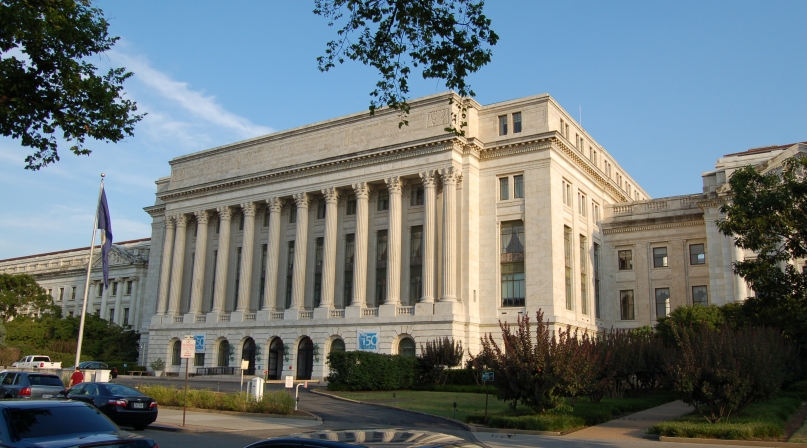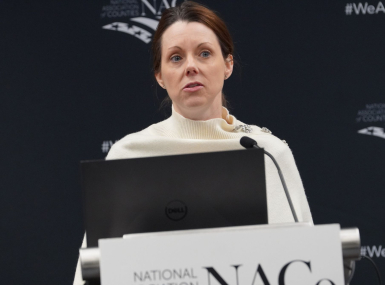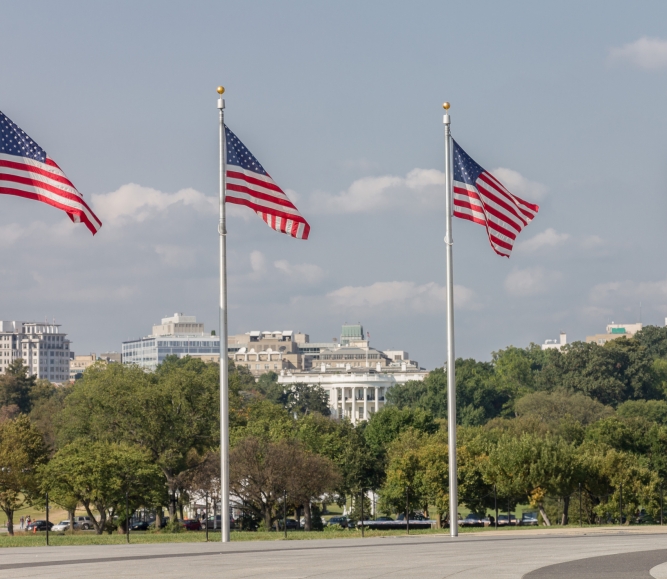Federal agencies amend interpretation of federal public benefits, restricting access for non-citizens
Author

Julia Cortina
Upcoming Events
Related News

Key Takeaways
UPDATE: On September 10, the U.S. District Court of Rhode Island issued a preliminary injunction blocking the implementation of the reinterpretation in the plaintiff states. In states not covered by the lawsuit, changes to program eligibility and an implementation timeline remain contingent on forthcoming guidance. On September 11, a federal judge in Seattle issued a nationwide preliminary injunction on the interpretation as it relates to the Head Start Program. The decision preserves current program operations until a final ruling is decided.
On July 14, pursuant to the Ending Taxpayer Subsidization of Open Borders Executive Order (EO 14218), issued in February 2025, several federal agencies took steps to expand the list of programs classified as “federal public benefits” under the Personal Responsibility and Work Opportunity Reconciliation Act of 1996 (PRWORA). Once in effect, these changes will limit access to certain federal programs for non-U.S. citizens and impose new verification requirements on counties that administer them. Agencies that have acted include the U.S. Departments of Health and Human Services (HHS), Agriculture (USDA), Labor (DOL), Education (ED) and Justice (DOJ). On August 13, NACo submitted comments to HHS expressing concerns regarding the administrative and fiscal burdens the reinterpretation could have on counties.
PRWORA background
- Under PRWORA, only U.S. citizens and “qualified immigrants” who meet specific requirements are eligible for “federal public benefits.”
- Qualified immigrants include lawful permanent residents, refugees, asylees and more. Immigrants who do not qualify for federal public benefits include those with temporary protected status, Deferred Action for Childhood Arrival (DACA) recipients, undocumented immigrants and more.
- Under original law, programs defined as “federal public benefits” under PRWORA include Medicaid, Medicare, the Supplemental Nutrition Assistance Program (SNAP), rental assistance programs administered by the Department of Housing and Urban Development (HUD) and others.
- PRWORA exempts “nonprofit, charitable organizations” from immigrant verification. While most notices from the federal agencies acknowledge this, many implementation questions remain.
Programs affected by new interpretation
U.S. Department of Health and Human Services - Guidance released on July 14
HHS released an updated list of programs that are now classified as federal public benefits and, as a result, are no longer available to non-qualified immigrants. The newly added programs are listed below:
- Certified Community Behavioral Health Clinics
- Community Mental Health Services Block Grant
- Community Services Block Grant (CSBG)
- Head Start
- Health Center Program
- Health Workforce Programs not otherwise previously covered (including grants, loans, scholarships, payments and loan repayments)
- Mental Health and Substance Use Disorder Treatment, Prevention and Recovery Support Services Programs administered by the Substance Abuse and Mental Health Services Administration
- Projects for Assistance in Transition from Homelessness Grant Program
- Substance Use Prevention, Treatment and Recovery Services Block Grant
- Title IV-E Educational and Training Voucher Program, Kinship Guardianship Assistance Program and Prevention Services Program
- Title X Family Planning Program
HHS’s reclassification of key health and human services programs as federal public benefits could create additional administrative burden on counties, restrict access for immigrant residents and disrupt the county-administered safety net. HHS has indicated that further guidance will be forthcoming and has a 30-day open public comment period. NACo submitted comments to HHS expressing concerns regarding the administrative and fiscal burdens the reinterpretation could have on counties.
U.S. Department of Agriculture - Guidance issued on July 10
USDA released guidance outlining that certain programs, including the Special Supplemental Nutrition Program for Women, Infants and Children (WIC), the Emergency Food Assistance Program (TEFAP), school breakfast and lunch programs and other child nutrition programs, are not affected.
USDA now considers certain licenses, grants, payments and loan programs as “federal public benefits." However, the agency does not explain how immigration verification requirements will be implemented and has stated that it will do so in future guidance.
U.S. Department of Labor - Guidance released on July 10
On July 10, DOL issued guidance stating that services provided under the Workforce Innovation and Opportunity Act (WIOA) are considered “federal public benefits.” As a result, individuals with temporary work authorization must now be reverified at least every three months in order to participate in WIOA programs.
These new verification requirements may reduce access to job training and employment services, placing added strain on local workforce development boards and increased administrative burdens for counties involved in WIOA program delivery.
U.S. Department of Education - Guidance released on July 11
On July 11, ED published a notice that provided a list of programs now classified as federal public benefits. The newly designated programs include:
- Title II of the Workforce Innovation and Opportunity Act
- Carl D. Perkins Career and Technical Education Act (Perkins V)
- Adult Education and Family Literacy Act (AEFLA)
- Higher Education Act (HEA) programs (including Pell Grants and student loans)
Restricting access to adult education, career and technical education and higher education support may hinder local efforts to upskill workers and promote economic mobility for immigrant residents.
U.S. Department of Justice - Notice released on July 16
On July 16, DOJ withdrew a 2001 order that listed programs exempt from PRWORA’s immigrant eligibility restrictions because they were deemed “necessary to protect life or safety.”
The 2001 order had exempted services such as crisis counseling, protective services, abuse prevention, domestic violence support, mental health and substance use treatment, short-term shelter and critical medical or public health services.
It remains unclear how DOJ will redefine the “life or safety” exemption moving forward. As of now, it is unclear which services may still be available to individuals regardless of immigration status, depending on the department’s final guidance.
What's next?
On July 21, 20 states and the District of Columbia filed a lawsuit against four of the federal agencies – DOJ, HHS, ED and DOL – claiming that the federal government acted unlawfully by issuing these changes without following required procedures under the Administrative Procedure Act and violating the Constitution’s spending clause. Furthermore, the lawsuit argues that many of these types of programs cannot realistically verify eligibility given the nature of the services, such as 24/7 crisis hotlines, emergency services for individuals suffering from overdoses and homeless shelters. Additionally, on July 15, a coalition of parents and Head Start providers requested to amend their lawsuit to challenge the HHS PRWORA notice.
Many implementation questions currently remain unclear and subject to future guidance, and additional programs may be added in the future. Counties should work with their state agency partners and legal counsel to prepare for implementation with impacted programs. NACo will continue to provide updates as we receive additional clarification from federal agencies.
Related News

National Association of Counties Launches Initiative to Strengthen County Human Services Systems
The National Association of Counties (NACo) announces the launch of the Transforming Human Services Initiative, a new effort to help counties modernize benefits administration, integrate service delivery systems and strengthen county capacity to fulfill our responsibility as America’s safety net for children and families.

Congress seeking ‘common-sense solutions’ to unmet mental health needs
Rep. Andrea Salinas (D-Ore.): “Right now, it is too difficult to access providers … and get mental health care in a facility that is the right size and also the appropriate acuity level to meet patients’ needs.”

Federal-level child welfare priorities center on supporting foster youth, families
Child welfare experts outlined current priorities at the federal level, including better supporting foster care youth who age out of the system and recruiting more foster parents, at NACo’s Human Services and Education Policy Steering Committee meeting.
Advocacy
White House Executive Order shifts federal approach to homelessness, mental illness and public safety
On July 29, the Substance Abuse and Mental Health Services Administration (SAMHSA) sent a letter to states clarifying implementation of the White House Executive Order on Ending Crime and Disorder by outlining how federal funds for substance use programs may be used.
